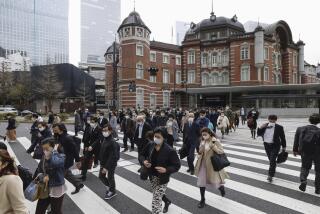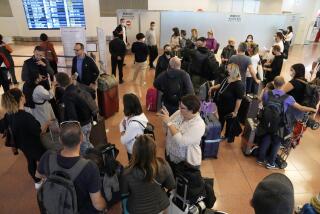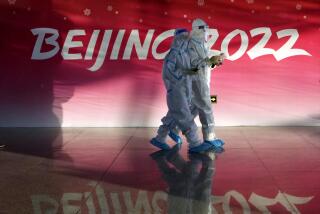What alcohol ban? Booze is free-flowing in Tokyo amid Olympics, despite pandemic prohibition
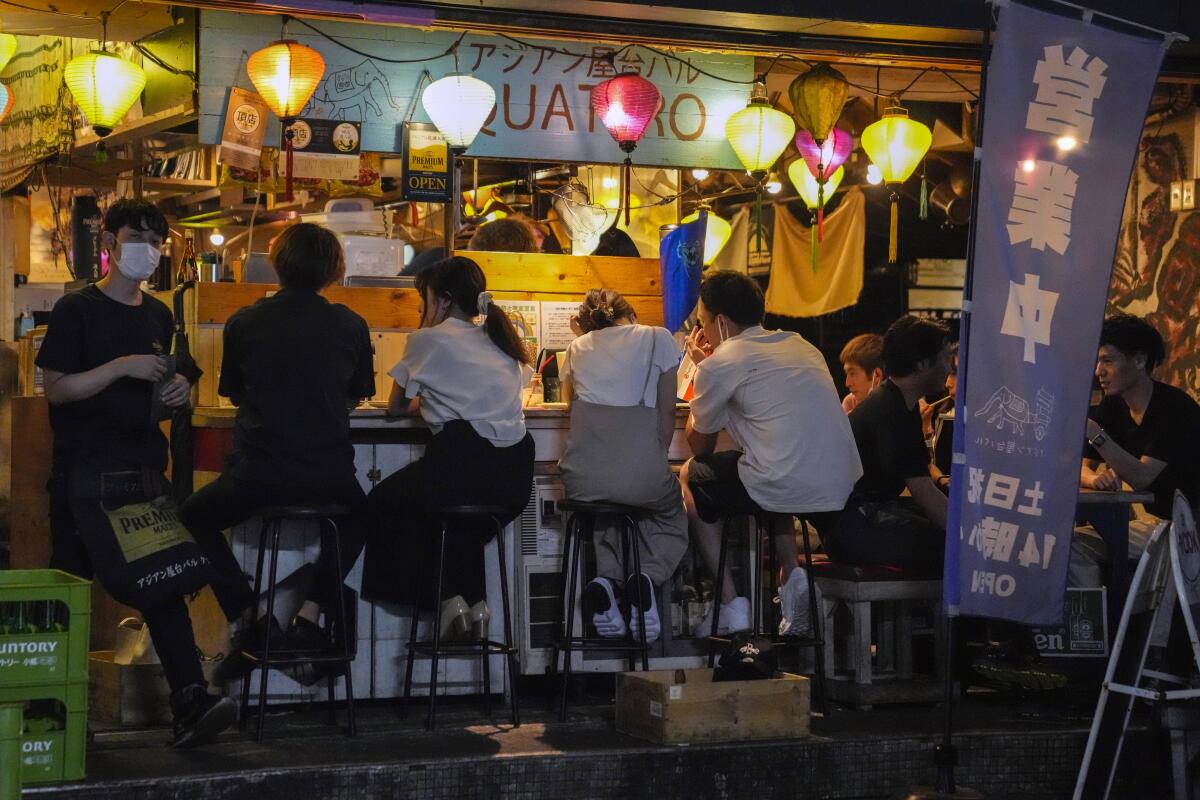
At 8 p.m., the bright billboards in Tokyo’s bustling Shibuya district went dark. A large truck with red and white lettering drove past, reminding people a state of emergency was in effect. No one paid much attention.
At a nearby smoke-filled bar, servers squeezed between a packed crowd of tipsy, mostly unmasked patrons. The screens were tuned to the kickoff of the all-important Olympic soccer semifinals between Japan and Spain. As the teams took the field, bar-goers got ready to toast the goals, drown the losses and drink to everything in between.
This has been a surreal Olympics: spectator-less and entangled in myriad pandemic-related restrictions. They were also supposed to be dry. With the country on the cusp of a fifth wave of COVID-19 cases, Tokyo and surrounding areas suspended alcohol service and ordered restaurants to be shuttered by 8 as part of a state of emergency.
But it’s summer, the city’s patience is wearing thin, and Japan’s medal haul (19 golds and counting) has this metropolis of 14 million in a festive mood. The booze is free-flowing — pandemic prohibition be damned.
“It’s no fun to stay home and drink,” said Kenji Kono, 54, who has been coming to the Shibuya bar a couple of days a week to watch the Olympics, traveling an hour from his home in Kanagawa prefecture, south of Tokyo. “I come here, I drink and I get rid of my stress. It’s the only pleasure I have.”
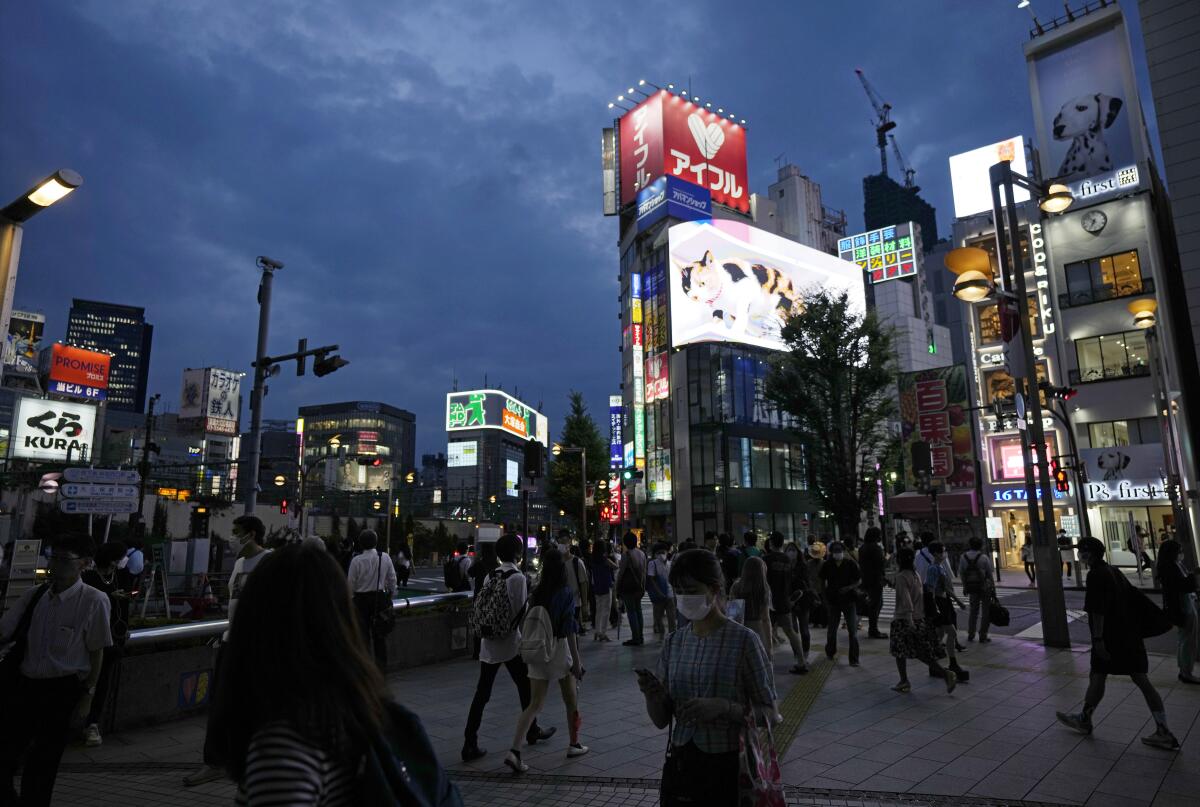
Kono, in a bucket hat, paisley button-down shirt and a blue Adidas face mask he pulled down to his chin for sips of beer, said he didn’t plan on getting vaccinated because he’d heard of the side effects. His mind wasn’t on the coronavirus pandemic but on supporting Team Japan, he said — and sport just isn’t the same without the hooch.
“It’s boring if it’s a soft drink,” he said.
Similar scenes playing out across Tokyo call into question claims by the International Olympic Committee and Japanese authorities that the record-breaking COVID-19 surge is unrelated to the Olympics. Even though athletes and other visitors are sequestered from the general public, excitement over the Games, which started slow and gradually accelerated, does not fit a batten-down state of emergency.
Such is the paradox of what Japan is asking of its people: Cheer, but silently. Get excited, but stay at home. Root for the athletes, but don’t try to get a glimpse of them. A populace, it seems, can only take so much contradiction and deprivation before it rebels.
Businesses can be fined for not complying with emergency measures, but many establishments are struggling after more than a year of pandemic restrictions and willing to take the risk. The Japanese government in July announced plans to crack down on alcohol sales by enforcing the ban through lenders and liquor suppliers. But fierce resistance from industry groups forced a retreat.
The Mainichi Shimbun, a major Japanese daily, criticized what it called the government’s “strong-arm tactics” and said they could backfire, noting that support payments to help offset the small businesses’ losses were significantly delayed.
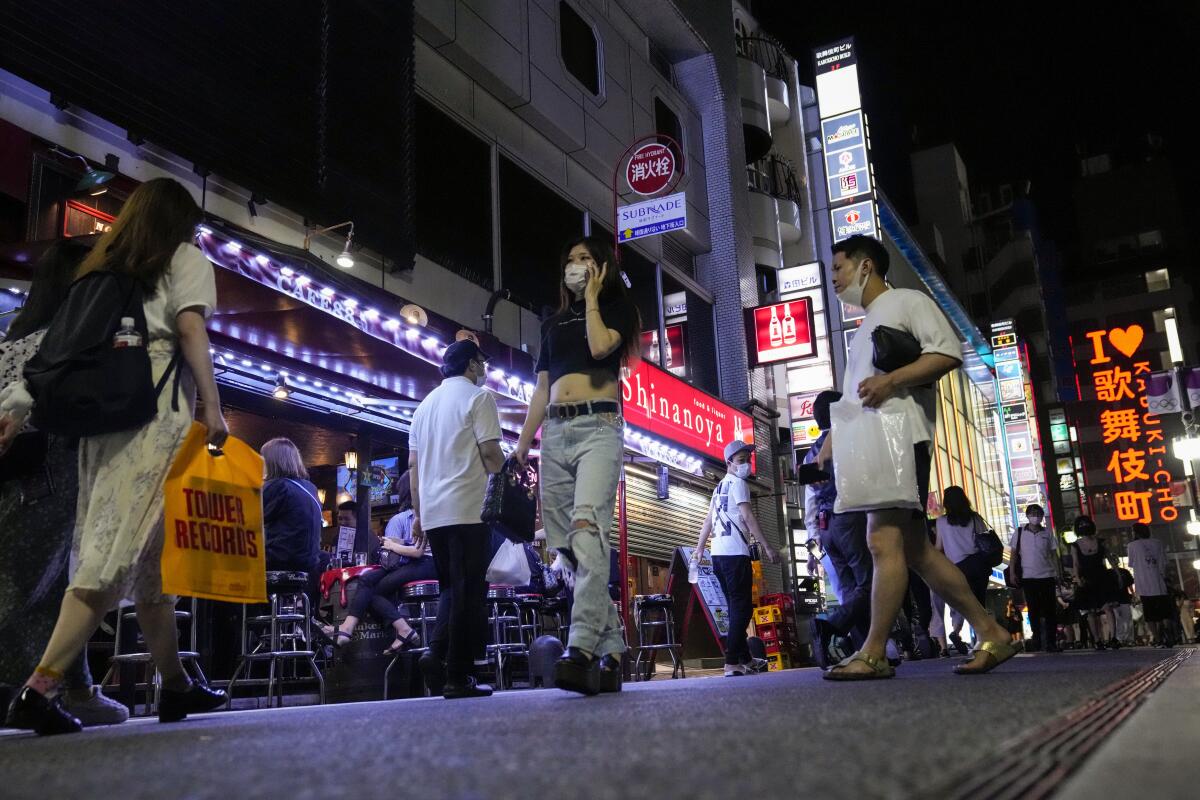
)
On Tuesday evening, bar after bar in Shibuya openly advertised happy hour specials or had posted signs saying they’d be open until midnight. An employee at one bar beckoned would-be customers on the street with a white board scrawled with an offer of all-you-can-eat options with a drink order.
Tokyo native Ken Lee, 24, was knocking back whiskys with a friend with occasional glances at the TV. He said he knew of several bars in the area that were serving alcohol and open late. Since recently quitting his job to prepare for graduate school, he’s been out drinking four to five times a week, he said.
“I know like five places that are definitely open,” he said. “Someone always knows a place.”
For the first six months or so of the pandemic, he complied with government directives and stayed in his 240-square-foot apartment. But he grew weary and miserable.
“I might get sick, but compared to staying at home and feeling that way I’m willing to take the risk,” he said. “If you’re not scared of COVID and not worried about passing it to people, the state of emergency is not going to stop you.”
The prohibition also extends to Olympic athletes, who organizers said are welcome to drink alone in their own rooms, but are otherwise barred from imbibition. The restriction has ruled out what is in a typical Games a raucous party atmosphere in the Olympic village, especially as the end nears and athletes are done competing.
Tokyo 2020 CEO Toshiro Muto said this week that officials were looking into reports that a group of athletes had been caught drinking in the village, and that “appropriate steps” will be taken.
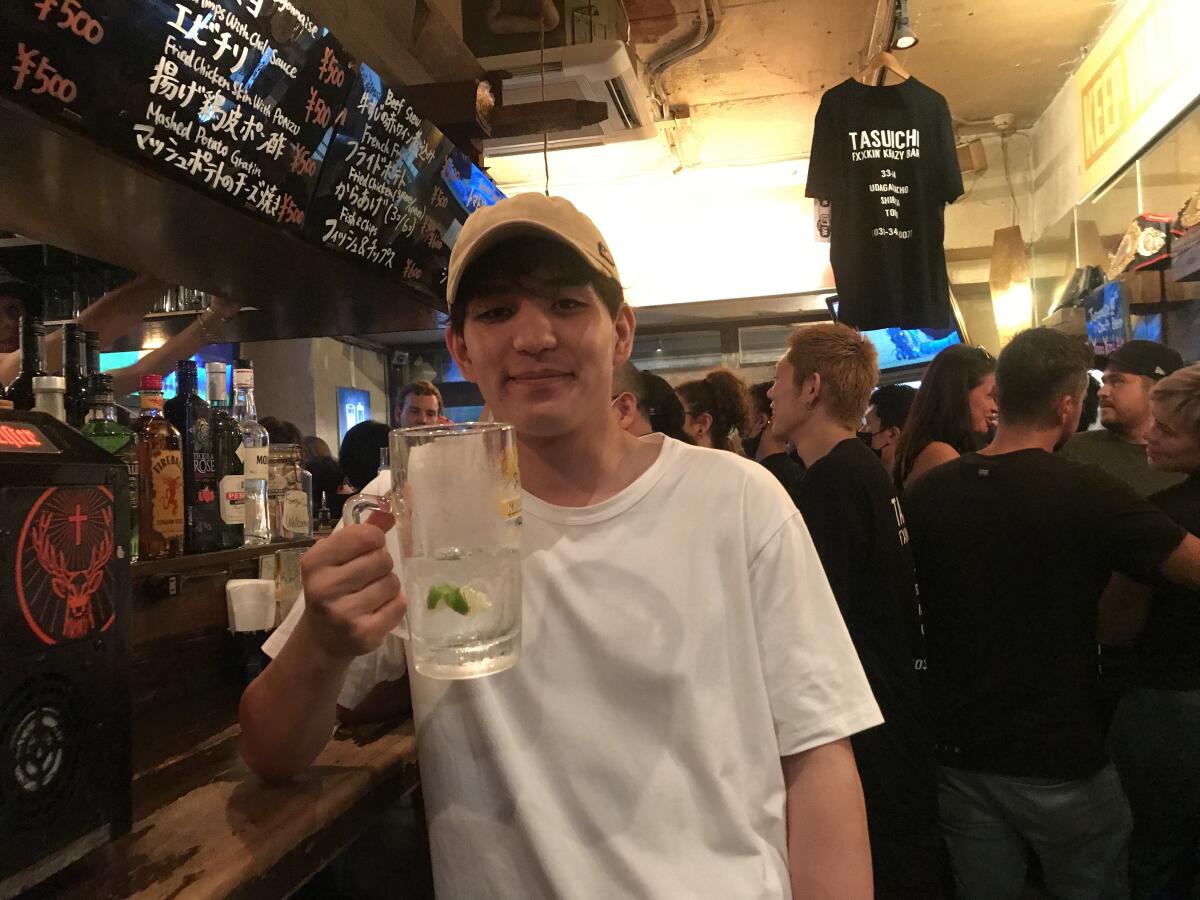
About five minutes into Tuesday evening’s game, Yuto Saiki was more than two-thirds of the way through his 2-pint stein of gin and tonic topped with a lime wedge.
The crowd let out a groan at a missed goal, and Saiki scowled at the TV.
He’d come from across town after a day of work as a caregiver for the elderly. Because of his work, he was able to get vaccinated earlier than others his age, and he had refrained from drinking out before receiving his vaccine.
People are fed up with the country’s leaders, with the anxiety they’ve been living with, he said.
“Japanese civilians aren’t really accepting politicians’ opinions right now,” Saiki said. “They have the confidence they won’t get infected or they won’t get it bad if they do.”
Halfway through the game at nearby Miyashita Park, an open-air area atop a shopping mall, all the benches and ledges were taken by groups of young people with cans of beer, Smirnoff Ice or Chuhai, a fruity shochu-based concoction.
Some were streaming the soccer match on laptops or phones, occasionally breaking out in exclamations or sighs.
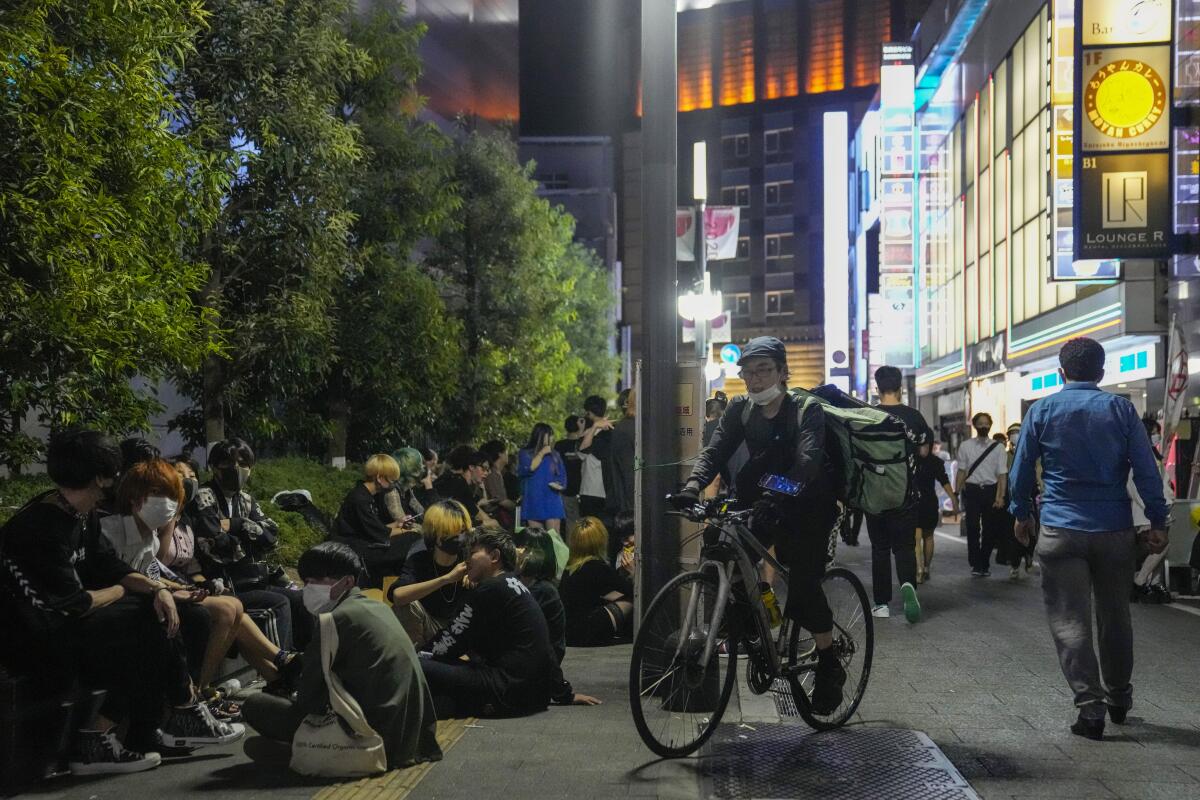
“It’s a joke. I don’t think you’d get it from drinking with friends,” said a bespectacled 41-year-old who gave his name only as Yu, out of concern about his employer. He and two other friends were drinking on a bench facing a small beach volleyball court with a scraggly palm tree that was closed off.
“I need to drink every day,” he said. “To break away from reality.”
His friend — a man of many opinions — said the government was sending contradictory messages by holding the Olympics but banning alcohol. He was glad the Games were going on for the sake of the athletes, but said he felt the Olympians too had been jerked around by the Japanese government’s indecision until the last minute.
Nearly two hours into the match, the score was an agonizing 0-0 and well into extra time. Patrons winced and grimaced in a wood-paneled izakaya a few blocks away from the park.
All eyes on the TV, food and drinks went forgotten. Then at the 115th minute, Spanish forward Marco Asensio curled the ball into the far corner of the goal.
“It’s the worst!” a young man cried out. “They’re too good.”
“There’s still time, let’s go!” his friend said.
The minutes ticked. No miracle was forthcoming. The final whistle blew, and Japan’s bid for gold came to an end — nearly three hours past the state-of-emergency closing time.
A man with a mop of hair turned away from the TV and for a minute, buried his face in his palms. He then sat up, and went on drinking.
More to Read
Start your day right
Sign up for Essential California for news, features and recommendations from the L.A. Times and beyond in your inbox six days a week.
You may occasionally receive promotional content from the Los Angeles Times.
